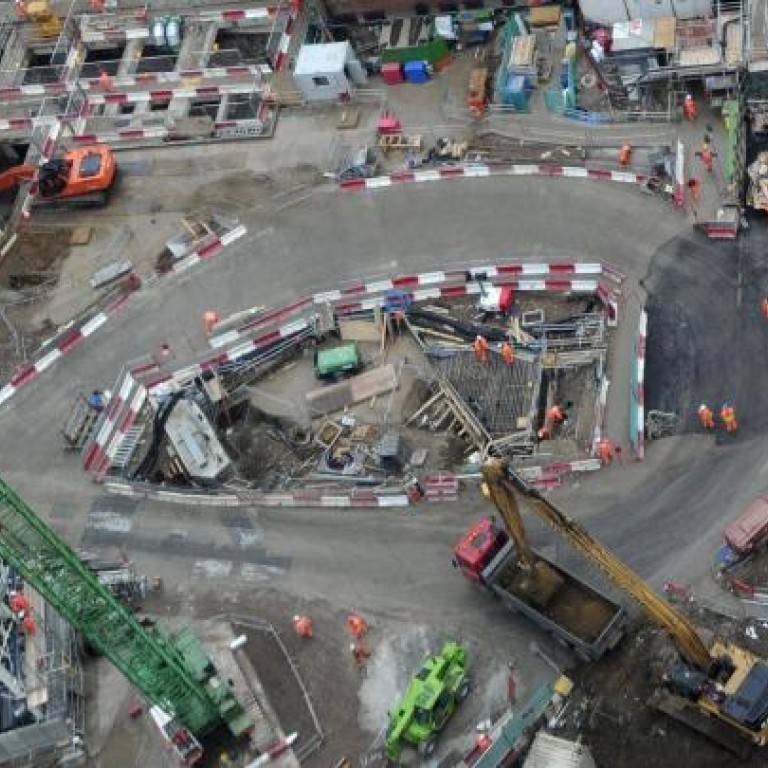
Time to idle Hong Kong's idling-engine 'enforcement'
When the figures for penalty tickets issued in 2012-2013 for idling engines were announced, champagne corks must have been popping at the Environmental Protection Department, at least in the enforcement section. For there was not just one ticket issued, nor two, but a whopping seven tickets, for a whole year, issued to drivers who kept their engines running for more than three minutes in a 60-minute period.
This law will surely go down as the biggest waste of legislative time ever, firstly in getting it through the Legislative Council, and then even more time is wasted in getting people to "enforce" it, if that is what it can laughingly be called.
One of our readers is infuriated on a daily basis by vehicles that wait in the parking bay below his apartment with their engines running, sending fumes wafting into his apartment should he open the windows or venture out on to his balcony. His letter to the chief executive's office with suggestions on how to deal with the problem was answered by the EPD, which blandly states that traffic wardens and environmental protection inspectors are empowered to issue fixed-penalty tickets.
Then, with astonishing gall, the official writes, "Traffic wardens will enforce the idling engine ban during patrol. In addition, the Environmental Protection Department will co-ordinate enforcement-cum-publicity activities at idling engine black spots."
We all know nothing could be further from the truth, as the figures show. Out of 1,204 drivers who were timed, only those seven were issued with a HK$320 ticket. The EPD seems to think that a combination of education, through the distribution of leaflets and "enforcement" will encourage motorists to develop the green driving habit. In much the same way, we assume, that signs and enforcement have discouraged illegal parking.
MTR Corporation shareholders may be interested to know that the company is one of the frontrunners, along with the operator of the Paris Metro and the German state rail company, to bid for Britain's first big new railway for 100 years. It's a £15 billion (HK$176 billion) project known as Crossrail that will run in tunnels in London.
MTR already has experience in London, where since 2007 it has been jointly operating the London overground train network. In addition to its operations in Hong Kong, it also has projects in Beijing and Shenzhen. It will be making a solo bid and describes it as a "serious rival".
Interestingly, almost all of the domestic British rail operators appear lukewarm on the project.
As everyone knows, the MTR's profits from its Hong Kong operations are heavily dependent on the peculiarities of its local business model, which give it access to cheap property development rights. This almost certainly will not be the way business is done in London. So how should we feel if it emerges victorious as the winner of the project? Without the property element, the profit margin on the project is likely to be a good deal lower than it achieves in Hong Kong. Railways are notoriously difficult to run profitably. So what happens if an MTR London operation is not as profitable as projected or if there are losses? The shareholders will have to take the strain.
Now for something slightly different. Tibetan Green Barley Beer claims to offer something more than ordinary beer, since it is made using Tibetan highland barley. The brochure for the brew asserts that, "according to the scientific tests, highland barley is rich in profuse nutrient such as B-hyskon, strontium, selenium, flavone and so on, which is good for our health. Compared to other kind of barley, highland barley has much more B-hyskon. It can reduce our cholesterol, avoid cardiovascular diseases, adjust sugar and blood-fat and reduce the lever of tumour LDL-C."
As for the water, "The glacier melting mineral water has been filtered by millions of rocks underground for years. Each drop is characterised by rich beneficial mineral and trace element."
Those that have tried the beer are not so enthusiastic. "Aroma: earthy hop; palate: light, thin; body flavour: bland and tasteless, finishes like tonic water," writes one reviewer. "Really unexciting stuff … very close to beer-flavoured water." Clearly an acquired taste.

